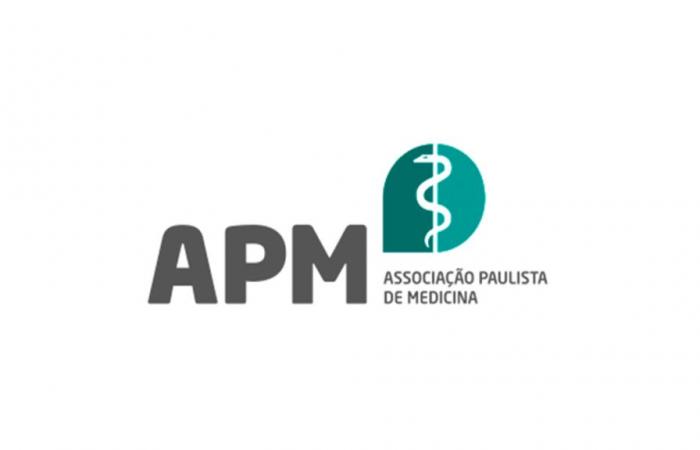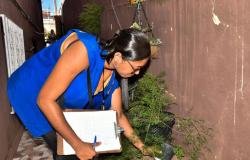In a worrying global trend, new cases of cancer among young people have increased dramatically. Early-onset cancers, defined as cancers diagnosed in people under the age of 50, have increased globally by a staggering 79%.
In the United States, the American Cancer Society reported that the demographics of cancer patients are increasingly shifting from older individuals to middle-aged people. While adults over age 50 experienced a drop in overall cancer incidence from 1995 to 2020, there was a significant increase in people under age 50.
Why are young people getting cancer at higher rates? Does this mean people should start getting screened for cancer at a younger age? Who should be most concerned? And what preventative measures should young people consider?
To help with these questions, I spoke to the wellness expert at CNN, Dr. Leana Wen. Wen is an emergency physician and adjunct associate professor at George Washington University. Previously, she was Baltimore’s health commissioner.
CNN: What are the deadliest cancers in young people?
Dr. Leana Wen: The early-onset cancers that cause the greatest number of deaths and burdens globally are breast cancer; tracheal, bronchial and lung cancer; and stomach and colorectal cancers, according to a 2023 study published in the journal BMJ Oncology.
These statistics are similar for older populations. In the United States, lung cancer, colorectal cancer, pancreatic cancer, and breast cancer are the four leading causes of cancer death. A report from the American Cancer Society especially highlighted colorectal cancer, which is now the leading cause of cancer death in men under 50 and the second in women under 50.
CNN: Why are cancer cases rising in people under 50?
Wen: There are several hypotheses. Some researchers point to rising obesity rates in recent decades, which is associated with the risk of early-onset cancer. On a related note, changing eating habits, specifically increased consumption of ultra-processed foods, and sedentary lifestyles are also associated with higher rates of cancer. Others speculate that there may be environmental factors at play, such as carcinogens released into the air, water and food supplies.
CNN: Should people start getting cancer screening at a younger age?
Wen: This is a complex question that I think is best answered by looking at recommendations for the population versus the individual.
Guidelines from major medical organizations and federal policy-making bodies are based on what is recommended for people at average risk. Most people should follow these guidelines.
For example, in the United States, the U.S. Preventive Services Task Force recommends that people begin screening for colon cancer at age 45. The working group also issued a preliminary recommendation that women start getting mammograms at age 40. Both revisions represent changes to the guidelines.
Before 2021, people were advised to start screening for colon cancer at age 50. The change in mammography was proposed only last year and has not yet been finalized. Before this recommendation, the guidance was for most women to start having mammograms at age 50.
These guidelines will continue to be revised. Researchers will consider factors such as demographic changes and the effectiveness of screening tools.
People at average risk should follow existing guidelines. This is one reason why they should ensure they have an annual check-up with their doctor or other primary care provider. This is the time to review all the tests you need to do, which includes cancer screenings.
This is also the time to discuss whether your personal medical situation puts you at higher risk compared to the average. This is a very important component of the visit, as these factors will determine whether they need to begin screenings at an earlier age than general guidelines.
For example, if a woman has a sister, mother or other first-degree relative with breast cancer, she herself has twice the average risk of developing breast cancer. Someone who has two first-degree relatives has a five-fold increase in the incidence of breast cancer compared to the average.
It’s crucial for people to know their family history because their doctor may recommend additional steps, such as genetic testing. They may also need to start getting mammograms or other screening tests at an earlier age.
Likewise, someone who has a first-degree relative with a history of colon cancer should also talk to their doctor about starting colon cancer screening earlier than the generally recommended age. Other people who may need a colonoscopy sooner are those with inflammatory bowel disease, such as Crohn’s disease, or certain inherited genetic conditions.
CNN: Should everyone talk to their doctor every year about cancer screenings?
Wen: Yes, and they must ensure that they carry out the recommended screenings. One in three people who are eligible for colon cancer screening have never had a screening test, according to the American Cancer Society. And up to 59% of women fail to have their annual mammogram, according to some research.
People may skip these tests for a variety of reasons. They may be busy with work and caring responsibilities. Although the Affordable Care Act is supposed to cover preventive care, including cancer screenings, they may not have a primary care doctor or face other barriers to accessing medical care. And they may think they don’t need these tests because they are young, healthy and feel fine.
But the alarming statistics about the rise of cancer in younger people should be a call to action. Many cancers are asymptomatic in the early stages. This is why screening is necessary: to detect these cancers before they spread. Treatment can be curative if cancers are detected early.
CNN: What else would you recommend young people do?
Wen: It is essential that people know their risks. Specifically, they need to know what their family history is and whether they have other medical conditions or lifestyle factors that increase their risk of early-onset cancer.
Everyone should try to find out their family history of cancer. Are there first-degree relatives who have had cancers? Know your own medical history and ask your doctor whether a certain condition may increase your risk of cancer. Also, be sure to mention all lifestyle factors, including smoking, alcohol consumption, eating habits, and physical activity.
CNN: Are there steps young people can take to reduce their cancer risk?
Wen: Yes. Smoking and heavy alcohol consumption are important risk factors. Quitting smoking and reducing alcohol consumption are important steps. Even one or two minutes of vigorous exercise a day can reduce your risk of cancer, as can reducing your consumption of ultra-processed foods. It’s also important to note that these lifestyle changes not only reduce your risk of cancer, but are also the same ones that decrease the likelihood of heart disease and premature death.
Source: Katia Hetter | CNN Brazil






